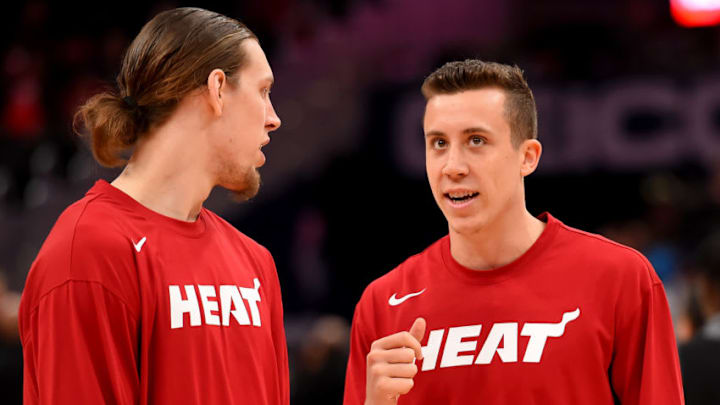
The Miami Heat have been subjected to Bradley Beal rumors for months. Regardless of any of that, for Duncan Robinson would be a lateral move, if not worse.
The Miami Heat have been here before. In fact, it seems that they never even left.
For the better part of a year now, we have been hearing the rumors surrounding Bradley Beal and the Miami Heat. Heck, we have documented them here on countless occasions already.
Not that any of our opinions are gospel, that’s just to show you that this isn’t in any fashion a new thing, but you all know that by now. What is kind of new is how far the fanbase, media, and everyone else who talks about such a move is willing to go to see a trade happen.
You assume that it has to be a trade based on the most recent deal that Beal signed. You know, the one that prevented him from being traded this season based on salary cap ramifications and the fact that his deal is pretty much layered with player option type language that leans towards him continuing to opt-in as the deal progresses.
Bobby Marks of ESPN lays it out with a bit more detail here.
"As part of the extension, Bradley Beal has a 15% trade kicker. The guard also has unique language when it comes to the player option in 2022-23. From when the extension is signed and until June 2022. Beal can decline or exercise the option. Because a player option is excluded when factoring in the value of the trade bonus at the time of the trade, opting-in to the last year would increase the bonus owed. The trade kicker could range between $6-9M. Beal is not eligible to be traded until after the 2019-20 season because the first year of his extension is greater than 5% from his 2020-21 salary. Beal will also receive a 50% advance of his $34.5M and $37.3M (if he opts-in) salary up front when the extension begins. Beal currently has two-years left ($27.1M and $28.75M) on the original $127M max contract that was signed in 2016."
You take this detail from above especially into account when thinking about the fact that it will probably be a trade if he’s moved. A trade keeps his current contract structure the same, meaning he would still receive large portions of his money upfront, regardless of which team it is that is paying him.
